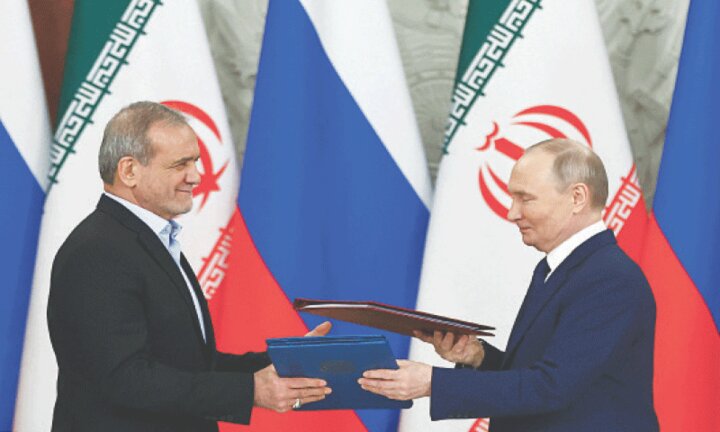The cooperation agreement between Russia and Iran reflects the current conditions of bilateral relations/ economic cooperation is the focus of the strategic agreement

reported by %20%0A
Sagin noted that the emergence of terrorism and extremism and the subsequent need for joint efforts in the fight against terrorism are among the issues that have been highlighted since 2001.
However, he has said that the main focus of this treaty is the area of trade, with special emphasis on energy and the North-South international transport corridor; The full text of this conversation follows:
How does this agreement change the previous patterns of cooperation or understanding between the two countries? >
In general, this treaty reflects the existing relations between the Russian Federation and Iran in recent years. If we recall the 2001 treaty between Russia and Iran, we will find that the new document more precisely outlines issues such as ensuring territorial integrity, fighting terrorism and extremism, and close cooperation between the two countries in dealing with new global challenges and threats. This is natural and understandable because 25 years ago these components did not play the role they play today.
How will this treaty change the current power relations in West and Central Asia?
Probably no changes will be made. Because the military alliance is not included in this agreement and the economic clauses focus on bilateral relations; Relations that do not have a special effect on the conditions of West and Central Asia.
Given that Iran and Russia are facing significant economic sanctions, what are the economic benefits of this agreement? Will it include the possibility for each of the two countries?
This agreement provides a legal basis for the initiation, creation and implementation of many projects in almost all areas of trade and economic cooperation. But it seems that the most important of them are the set of measures to improve the efficiency of the North-South international transport corridor and the plans to expand and deepen cooperation in the field of energy, especially the gas sector.
To what extent does this agreement reflect the objective coordination of strategic priorities between Iran and Russia? Are there areas that diverge their long-term interests and lead to future tension or disputes?
The intersection of strategic priorities between Iran and Russia is basically based on the political, economic and military confrontation with the West. From this point of view, we cannot rule out the possibility that both countries, due to different internal or external conditions, will decide to change their policies towards the West, and as a result, other problems will emerge and it will not be satisfactory for the common interests of the two countries. If we don’t want to be too detailed, we can name at least three areas: Iran’s nuclear issue, Russia’s relations with Israel, and the method of solving the Palestinian issue.
In general, how stable and sustainable is this growing strategic partnership between Iran and Russia? Is it durable?
Everything depends on global developments, the conditions of the Middle East, the policies of Donald Trump, the new American president, as well as the policies of China (the influence and role of these superpowers in world politics cannot be Another issue is Iran’s internal political developments, which are not very stable right now, and include the development of relations with Russia.


